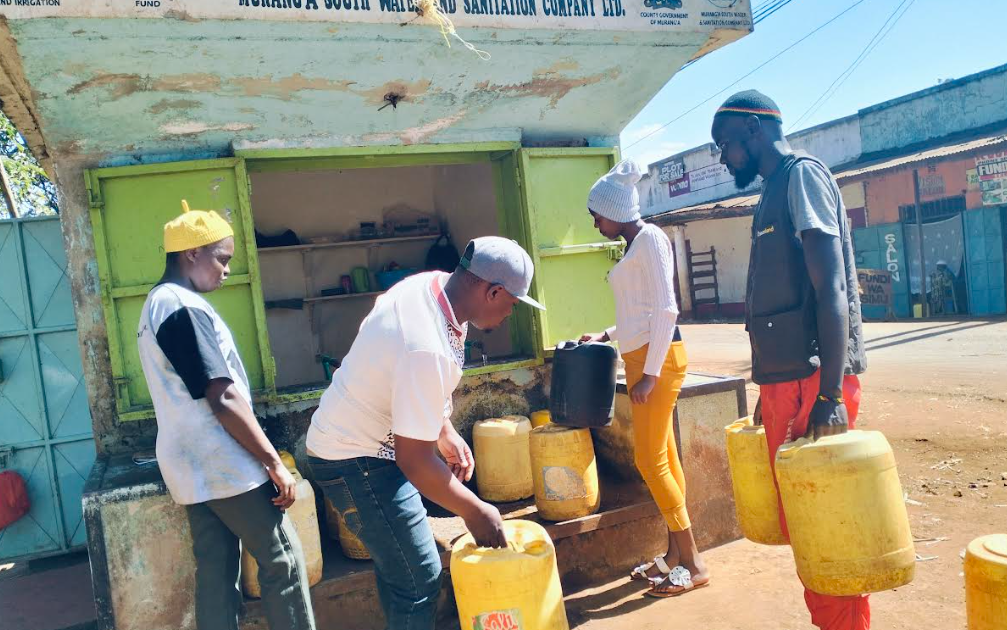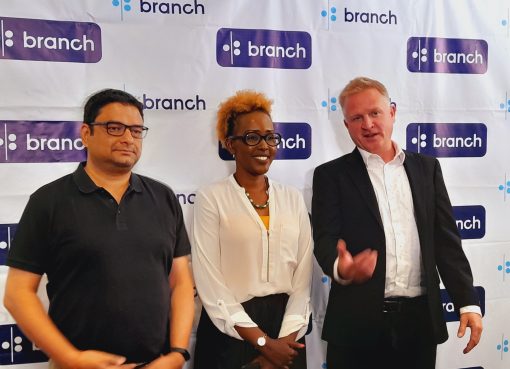As the fight against alcohol and drug abuse, often characterised by hard talk and ultimatums, intensifies in the central region, where young people are indulging in these antisocial behaviours, a lone voice of hope is heard in the Murang’as Kamahuha area.
KNA caught up with 56-year-old Edward Kamande Mwangi, who for the last four years has been restoring hope to drug-addicted youth, offering them a listening ear and providing a form of livelihood to them upon quitting drugs.

His journey, he says, started in 2020 when he noticed a pack of young men lazily hanging around the vicinity of his compound as he had just moved into the area.
“As I left for work, I would find a group of not less than 10 young men just sitting around either smoking bhang or chewing miraa (Khat). I was greatly perturbed by their sense of loss of direction, and I sought to engage them,” he says.
Mwangi approached one of the young men, John Irungu, and asked him why they were wasting their most productive years in drugs.
Irungu told him that they lacked someone to listen to their problems and life concerns, and that is why they chose to hang around with likeminded friends, obviously caving in to peer pressure.
This response bolted him to the reality of there being a shortfall and a wide gap in the society on how the boy child has been handled and raised.
“I sent him to tell his friends that I would like to meet them the following Sunday, and to my surprise, 20 young men turned up at my door, and we had a fruitful engagement for over eight hours, and it emerged that the majority of them felt misunderstood, judged, and lacked a father figure to nurture them through life,” he notes.
The young men indicated that engaging in bhang, alcohol, and khat gave them the much-needed relaxation and relief from life’s hardships.
They would hold subsequent meetings during which Mwangi enlightened them on the effects of substance abuse, and they were all willing to turn on a new leaf.
With time, the glass ceiling was broken, and in him they confided their deepest desires, pains, secrets, and ambitions for over one year, during which most of them were already off drugs.
The young men would later suggest contributing Sh. 100 each Sunday, proceeds from the menial jobs they did for survival, and consequently registered a self-help group by name Gikeu Friends Self Help Group with the help of their mentor, Mwangi.

In 2022, God decided to reward the group’s efforts, when a tender to manage a public toilet in Kamahuha town by one water provider was announced. “I approached the management and assured them that my group of young men would responsibly take care of that facility and that I would be liable if anything happened,” he says.
Mwangi would help the group apply to manage the facility, and it was handed over to them, and he immediately stationed two of the already reformed young men to manage the facility.
“By sheer lack, the same water provider opened a water kiosk, and I again approached them, requesting to have the group manage the kiosk, and again it was handed over to us, whereby we stationed two other young men to manage it.
Currently the group has a water kiosk in Sababsaba and another at the Kamahuha trading centre, where they sell a 20-litre jerrican at Sh 5 and distribute the basic commodity to residents using hand carts at Sh 10 per jerrican.
One of the group members, John Irungu, 29, who is among the pioneers, notes that they found a listening ear in Mwangi and met their Damascus moment from a life of drugs.
“I used to chew miraa, use bhang, and take illicit brews and did not have hope for a tomorrow, but now through this initiative I am drug-free, have a family, and was able to purchase a motorcycle, which is my source of livelihood.
Irungu argues that it doesn’t take richness to change a youth. “In my capacity since I joined this group, I have been able to reform more than five young people, so if we all join hands as a society, we will rescue the youth from drugs,” he says.
Nancy Njoki, 20, is another beneficiary of the group, as hers is an isolated case.
Njoki comes from a single-parent family and dropped out of school in Form 2 due to financial constraints. “I would later get a child and engage in menial jobs so as to provide for him. It was hard, and I found myself engaging in abusing drugs like miraa, alcohol, and bhang, baby strapped on my back,” she says, tears in her eyes.
“But when Mwangi heard about my plight, he approached me, took me in with my child, and offered me the job to manage the Sabasaba water kiosk where I get to feed my child, mom, and brother,” she says.
Whereas Irungu urges well-wishers to help the group set up a car wash so that more young people can be absorbed, Njoki hopes that one day she will be able to complete her education and become a teacher. “I also urge well-wishers to help us purchase a hand cart so that we can be able to distribute more water to residents within Sabasaba town.
By Florence Kinyua




